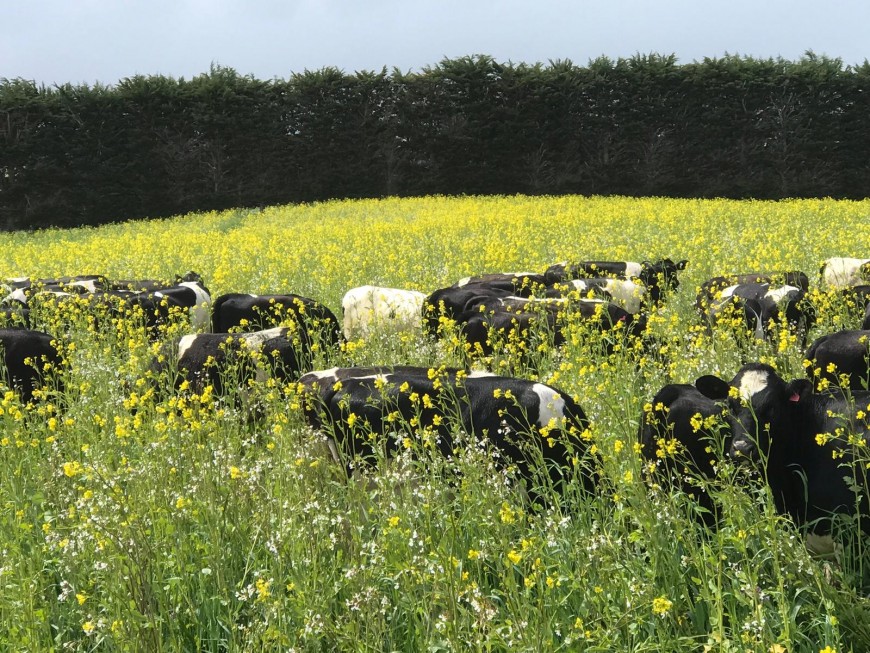Regenerative agriculture – what does it mean for New Zealand?

Cattle in field. Regenerative agriculture.
With a groundswell of farmers transitioning to regenerative agriculture in New Zealand, there is an urgent need for clarity about what regenerative agriculture is in New Zealand and for scientific testing of its claimed benefits.
Produced in February 2020, a new white paper set out 17 priority research topics and introduced 11 principles for regenerative farming in New Zealand. The white paper, led by Manaaki Whenua’s Dr Gwen Grelet, was the result of intensive collaboration and consultation with more than 200 people from June to November 2020. Collaborators included farmers and growers, researchers, primary industry bodies, banks, retailers, non- governmental organisations, government departments, large corporates, consultants, marketers, overseas researchers, and educators.
The project was funded by the Our Land and Water National Science Challenge, the NEXT Foundation and Manaaki Whenua.
